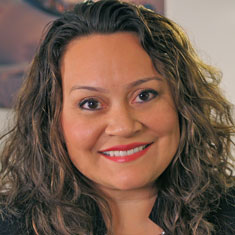DAI’s Heredia-Ortiz, Coauthors Honored for Paper on Political Economy of Decentralization
May 21, 2012
DAI’s Eunice Heredia-Ortiz and three coauthors were recently honored for their paper, “Rethinking the Political Economy of Decentralization: How Democracy and Political Parties Shape the Provision of Local Public Goods.”
 The paper was selected to receive the American Political Science Association Federalism Section Deil Wright Best Paper Award. It investigates the political conditions under which decentralization—the devolution of decision-making power and resources from national to local authorities—would improve the delivery of public services. The authors extend the renowned Oates’ (1952) decentralization theorem suggesting that the interaction of democratic decentralization (i.e., the creation of popularly elected sub-national governments) and party centralization (i.e., the power of national party leaders to nominate candidates for subnational office) will produce the best outcomes for public service delivery.
The paper was selected to receive the American Political Science Association Federalism Section Deil Wright Best Paper Award. It investigates the political conditions under which decentralization—the devolution of decision-making power and resources from national to local authorities—would improve the delivery of public services. The authors extend the renowned Oates’ (1952) decentralization theorem suggesting that the interaction of democratic decentralization (i.e., the creation of popularly elected sub-national governments) and party centralization (i.e., the power of national party leaders to nominate candidates for subnational office) will produce the best outcomes for public service delivery.
Using a new dataset of subnational political institutions for 148 countries over 25 years, the authors empirically tested the hypothesis that countries with locally elected governments and centralized political parties more effectively deliver public services such as education. The authors find that strong local governance encourages accountability, while centralized political parties incentivize local leaders to adequately provide goods whose benefits spillover beyond their constituencies.
Heredia-Ortiz, a public finance economist at DAI, coauthored the paper with Jorge Martinez-Vazquez and Charles R. Hankla of Georgia State University and Raúl A. Ponce-Rodriguez of the Universidad Autónoma de Ciudad Juárez. In acknowledging a global trend toward decentralization, the study provides greater understanding of the appropriate political conditions of subnational governance necessary to achieve greater impact to the everyday lives of citizens, and important implications to best assist countries with centralized power structures that wish to decentralize.
RELATED CONTENT:
World Bank Project Funds Climate-Friendly Solar-Powered Schools in Palestine
The Finance for Jobs project in Palestine has awarded a grant enabling the installation of solar rooftops on 400 schools across the country, creating a total of 28 megawatts of generating capacity. The rooftop-solar installation is the largest electricity generation project in Palestine.
Read More